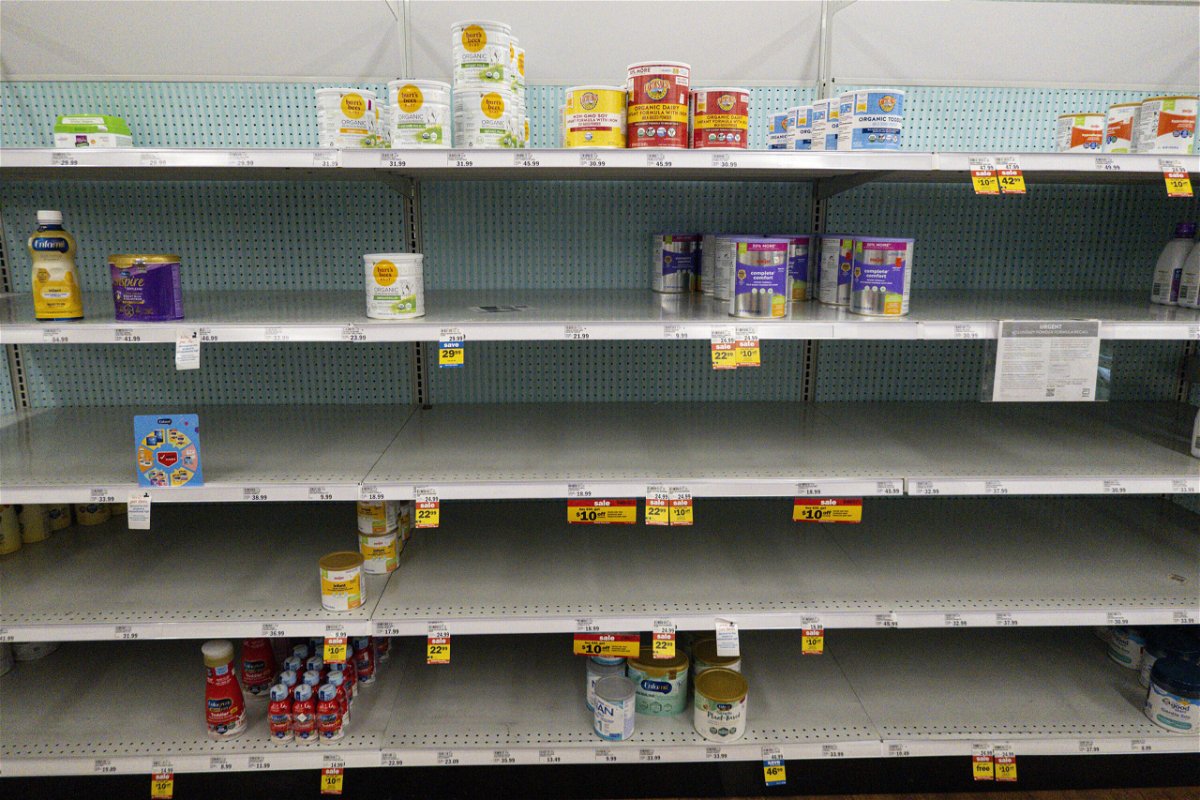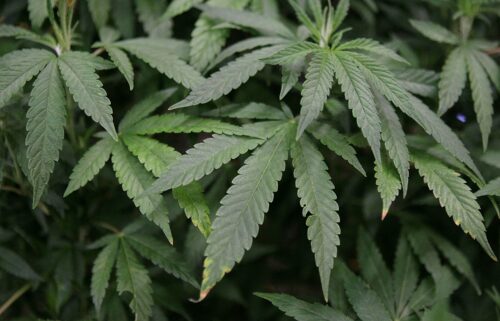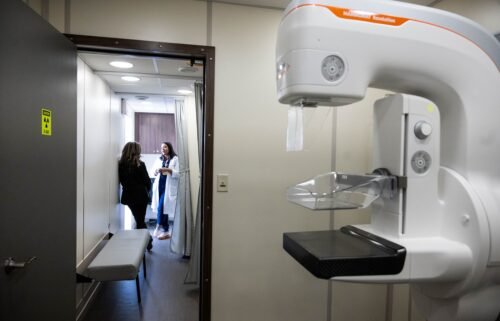Homemade infant formula can be dangerous. Experts share how to feed your baby through the shortage

Misinformation about how families can get through the infant formula shortage is fueling concern among pediatricians like Dr. Tanya Altmann.
By Madeline Holcombe, CNN
Misinformation about how families can get through the infant formula shortage is fueling concern among pediatricians like Dr. Tanya Altmann.
The California doctor has been getting phone calls, emails and social media messages — not just from her patients but from families all over the United States — along with photos of empty store shelves that once held infant formula.
Parents say they’ve been to a dozen stores and looked on a hundred websites and can’t find their baby’s infant formula, and they want to know what to do and whether some of the so-called alternatives they’re hearing about are legit.
“It’s scary for these moms and their babies, and it’s becoming a real issue,” Altmann said.
Supply chain issues and product recalls have sparked the nationwide shortage of infant formulas. As of early April, seven states reported that between 40% and 50% of baby formula products were out of stock. Manufacturers have said they are producing at full capacity to make as much as they can, but this week 43% of baby formulas were out of stock, according to a new report from Datasembly.
The US Food and Drug Administration is working with Abbott Nutrition, the company involved in the recent recall, to safely resume production and find tools to support the supply of infant formula, according to an FDA spokesperson. But its Michigan facility is likely still about two weeks away from being back online, pending sign off from the FDA, and it will probably be another six to eight weeks until products are back on the shelves, according to a statement from the company.
Some people are turning to online communities of caregivers to get some ideas about what to do if they can’t get their baby’s source of nutrients. However, pediatricians are worried about the health impacts of some of the ideas posted online, said Altmann and Dr. Steven Abrams, a professor of pediatrics at the University of Texas at Austin and former chair of the American Academy of Pediatrics Committee on Nutrition.
The pediatricians said there are ways to get through the shortage for many people, and it is important to work with your pediatrician to address your infant’s particular needs. Here are answers to some of your questions about what’s safe and what is not.
Can I make formula at home?
No.
“There is a lot of discussion about making your own formula at home and things of that sort, and I really want to discourage that as much as possible,” Abrams said.
Formulas are complex, and researchers spent years developing the right ratio to give babies the nutrients they need, Altmann said.
Infant formulas must be dense with protein, fat, vitamins and minerals, many of which you can’t buy at the grocery store. And the balance must be precise for babies’ health and development, she added.
“You can see how it would be really hard to duplicate in your own kitchen,” she said.
Homemade formulas can result in a baby not getting the right nutrition or having the ratio of their electrolytes disrupted, which can be dangerous, Altmann said. There have also been cases of bacterial contamination, which can make the infants sick.
Can I stretch out my formula supply?
No.
Adding in other food sources or adding more water to formula is tempting as you get close to the end of your last container of formula, but pediatricians said it’s not a good idea.
Families can start introducing solids into an infant’s diet when the baby is around 4 to 6 months old, Altmann said. But these foods are not a nutritional substitute for formula at that age.
“Even when you start solids, breast milk or infant formula is still the major source of nutrition for your baby,” Altmann said.
And adding extra water to stretch the formula you have can dilute the essential nutrient profile and lead to serious health issues and interfere with proper growth and development, she added.
“We’re not irrational. If there is nothing you can put in the baby’s mouth except cow’s milk, you’re going to do that,” Abrams said. “But that’s not what we want people to do.”
Can I use toddler formula or cow’s milk instead?
Maybe.
It really depends on how old your baby is and what your pediatrician says.
For the first six months at least, formula specified for infants is really important, Altmann said. But the closer they are to a year, there may be more flexibility.
“You can actually choose a toddler formula at that point where normally you’d want to wait until they’re exactly a year of age,” Altmann said. “Talk to your pediatrician, always, first.”
“We discourage the use of cow’s milk until a year of age but it’s certainly true that as the baby is close to a year of age, especially if it’s simply no formula to be found, that you could use either that or a toddler formula,” Abrams said. “Neither are ideal, but the closer you are to the year, especially for the short term, those are alternatives.”
Can I buy international formulas online?
Maybe.
Altmann said there are some high-quality products made in Europe and Australia she likes that are available online. But it is important to make sure you are ordering from reputable retailers.
She recommended buying from trusted pharmacies of the country the formula is from and checking how the formula’s nutrition compares to FDA-approved formula.
“Not all international formulas are created equally so you may want to make sure you know what you are getting and that it’s a high-quality product,” she said.
But Abrams cautions against imports, reminding families that imported formulas are not reviewed by the FDA.
“It’s a less-than-ideal alternative but if that’s what they have to do, then that’s what they have to do,” he said.
The FDA recommends against importing formula online because it could potentially be counterfeit, a spokesperson said.
Can I switch formula brands?
Yes.
“What we want people to do if at all possible is to be as flexible as possible and make formula switches,” Abrams said.
It may take your baby a few days to get used to a new formula brand, but in most cases, switching is fine, Altmann said. You can find good formula choices for your baby here.
It gets more complicated, however, in cases where a child may be on a certain formula because of an allergy or sensitivity.
“If your child has an allergy or sensitivity and has had previous reactions to formulas, please consult with your pediatrician before switching off because not all formulas are the same,” Altmann said. “But in most cases, there are other options available we can help direct you to.”
The FDA is allowing Abbott Nutrition to release product on a case-by-case basis to some families in urgent need of specialty and metabolic formulas, according to the agency.
Can I restart my breast milk supply?
It’s complicated.
There have been instances where parents can induce lactation for the first time or restart lactation after choosing not to breastfeed, Altmann said. The process is complicated, however, and likely requires the help of a lactation specialist.
There are also banks where you can buy breast milk donated by other families. You can find milk banks near you through the Human Milk Bank Association of North America.
The-CNN-Wire
™ & © 2022 Cable News Network, Inc., a WarnerMedia Company. All rights reserved.



